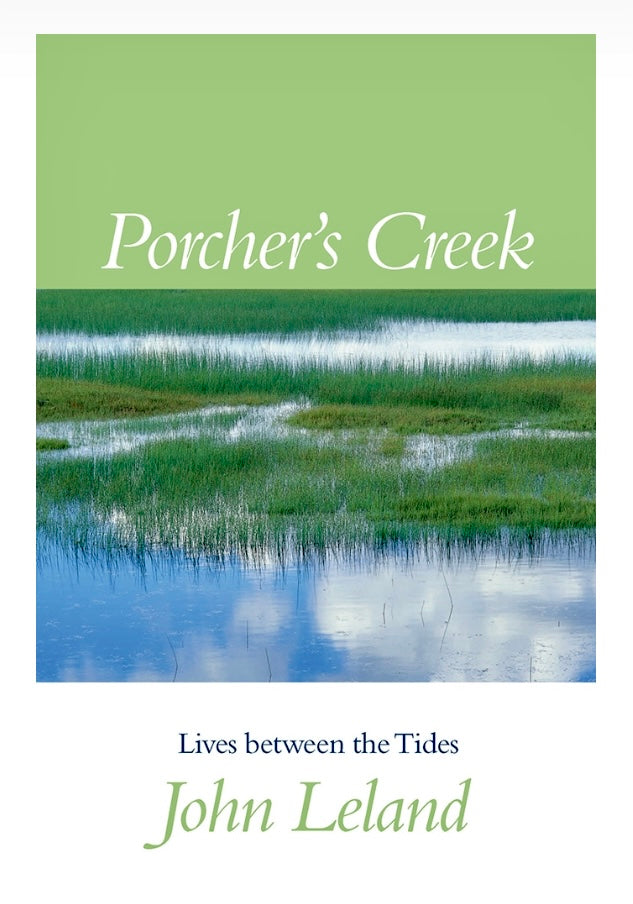1
/
of
1
University of SC Press
Porcher's Creek, Lives between the Tides ~ John Leland
Porcher's Creek, Lives between the Tides ~ John Leland
Regular price
$20.00 USD
Regular price
Sale price
$20.00 USD
Unit price
/
per
Couldn't load pickup availability
"Columbus knew no greater thrill than I, a ten-year-old discovering new creeks and branches and islands and mainland hideaways ....I resolved to make my living as an explorer and said so in school when we were all asked what we planned to do upon our growing up."
John Leland lived a Huckleberry Finn sort of boyhood that most children would envy. A fifth-generation lowcountry native, he grew up fishing, swimming, and hunting arrowheads on a tidal creek just north of Charleston, South Carolina. With admirable freedom, he poled his bateau through the maze of oyster banks and the tangle of salt waterways known as Porcher's Creek. He spent years learning where the conchs congregated, where the clams kept secret rendezvous, and which hole hid the sweetest crabs. He became a naturalist by studying heron, frogs, and porpoises. Leland's existence was so intertwined with Porcher's Creek that he lived, slept, and ate by its tides and seasons—until exiled by family misfortune and suburban encroachment.
Leland combines nature writing and reminiscence with a heartfelt examination of change along the South Carolina coast. He celebrates Porcher's Creek as a watery refuge that links him to his childhood and ancestry, weaving together his family's story with that of the creek. He chronicles both the geographic dispersal of his family and the abandonment of traditional lowcountry ways of life.
John Leland lived a Huckleberry Finn sort of boyhood that most children would envy. A fifth-generation lowcountry native, he grew up fishing, swimming, and hunting arrowheads on a tidal creek just north of Charleston, South Carolina. With admirable freedom, he poled his bateau through the maze of oyster banks and the tangle of salt waterways known as Porcher's Creek. He spent years learning where the conchs congregated, where the clams kept secret rendezvous, and which hole hid the sweetest crabs. He became a naturalist by studying heron, frogs, and porpoises. Leland's existence was so intertwined with Porcher's Creek that he lived, slept, and ate by its tides and seasons—until exiled by family misfortune and suburban encroachment.
Leland combines nature writing and reminiscence with a heartfelt examination of change along the South Carolina coast. He celebrates Porcher's Creek as a watery refuge that links him to his childhood and ancestry, weaving together his family's story with that of the creek. He chronicles both the geographic dispersal of his family and the abandonment of traditional lowcountry ways of life.
Share


